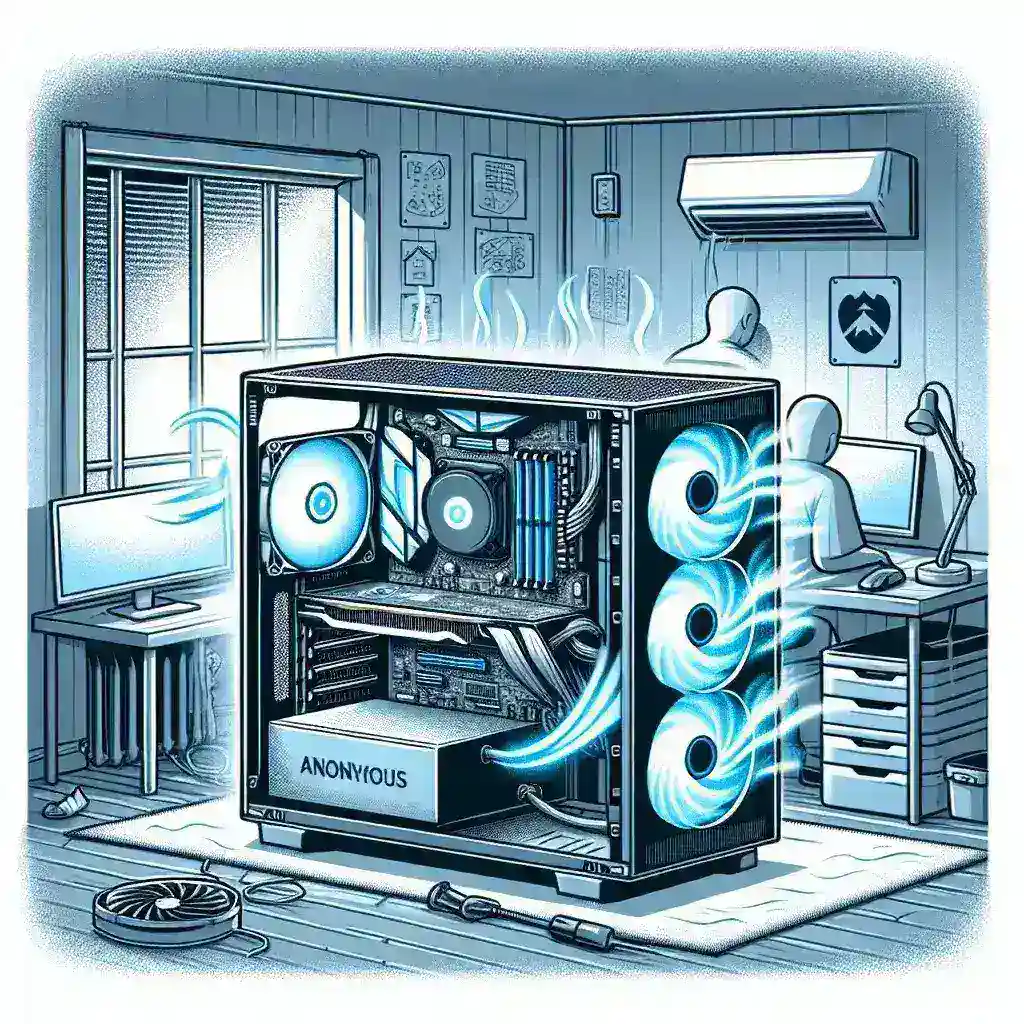Gaming PCs are notorious for generating substantial heat due to their high-performance components such as GPUs and CPUs. Keeping your gaming PC cool is essential for maintaining optimal performance and prolonging the lifespan of your hardware. In this article, we will discuss various strategies to ensure your gaming PC remains cool under intense gaming sessions.
Importance of Keeping a Gaming PC Cool
Maintaining an optimal temperature for your gaming PC can lead to enhanced performance, reduced thermal throttling, and a longer lifespan for your components. Below is a summary of the significant benefits:
| Benefits of a Cool Gaming PC |
|---|
| Decreased Thermal Throttling |
| Enhanced Performance |
| Extended Hardware Lifespan |
| Stable System Operations |
| Improved Overclocking Potential |
Optimize Airflow in Your Case
Effective airflow management is critical for keeping your gaming PC cool. Here are some tips to optimize airflow:
- Ensure a Clean Case: Regularly clean dust and debris from inside your PC case and components.
- Organize Cables: Use cable management strategies to prevent airflow obstruction.
- Install Additional Fans: Place intake and exhaust fans strategically to promote airflow circulation.
- Consider Case Placement: Position your PC case in a location with adequate ventilation.
Upgrade Your Cooling System
If your gaming PC still runs hot, it might be time to upgrade the cooling system:
- Air Coolers: Invest in high-quality air coolers for your CPU and GPU to improve heat dissipation.
- Liquid Cooling: Opt for an all-in-one (AIO) liquid cooling system for efficient thermal management.
- Custom Loop Cooling: For enthusiasts, a custom liquid cooling loop offers superior cooling performance.
Apply Thermal Paste Correctly
Thermal paste plays a crucial role in bridging the gap between your CPU/GPU and their coolers:
- Use Quality Thermal Paste: High-quality thermal paste can significantly improve heat transfer.
- Apply Properly: Apply an even, thin layer of thermal paste to ensure optimal contact.
- Replace Regularly: Reapply thermal paste every couple of years or when changing coolers.
Monitor and Control System Temperatures
Real-time temperature monitoring helps identify and resolve heat issues promptly:
- Use Monitoring Software: Tools like HWMonitor, MSI Afterburner, and Core Temp can track temperatures.
- Set Fan Curves: Adjust fan speeds based on temperature thresholds to enhance cooling efficiency.
- Stress Test Components: Use benchmarks like Prime95 and FurMark to ensure stable cooling under load.
Upgrade PC Components
Sometimes, upgrading certain components can enhance overall thermal performance:
- Efficient Power Supply: A high-quality, efficient PSU generates less heat.
- Performance RAM: Opt for RAM with better heat dissipation features.
- Solid-State Drives: SSDs produce less heat compared to traditional HDDs.
Maintain a Clean and Dust-Free Environment
Dust buildup is a common cause of overheating in gaming PCs:
- Regular Cleaning: Dust your PC components and case interiors periodically.
- Use Filters: Install dust filters on intake fans to minimize dust accumulation.
- Keep Surroundings Clean: Ensure the area around your PC is free from dust.
Consider Environmental Factors
Environmental factors can significantly impact your gaming PC’s temperature:
- Ambient Temperature: Keep your PC in a cool, well-ventilated room.
- Humidity Levels: High humidity can affect cooling efficiency; use dehumidifiers if necessary.
- Seasonal Variations: Adjust cooling setups based on seasonal changes in temperature.
Adjust Overclocking Settings
Overclocking can increase heat generation; optimize your settings to balance performance and temperature:
- Moderate Overclocks: Avoid extreme overclocking that significantly raises temperatures.
- Efficient Voltage Settings: Reducing voltage can lower heat output while maintaining stability.
- Thermal Management Profiles: Use motherboard and GPU software to create efficient thermal management profiles.
Conclusion
In conclusion, keeping your gaming PC cool is vital for maintaining high performance and ensuring the longevity of your hardware. By optimizing airflow, upgrading cooling systems, applying thermal paste correctly, monitoring temperatures, upgrading components, and considering environmental factors, you can achieve a well-cooled gaming PC. Implement these strategies to enjoy a seamless and stable gaming experience.

